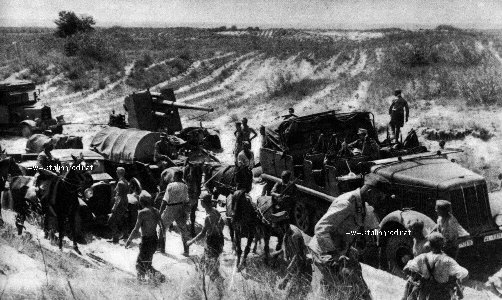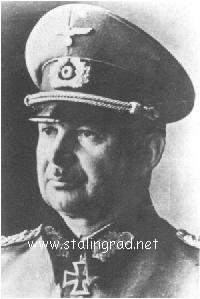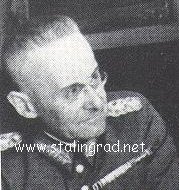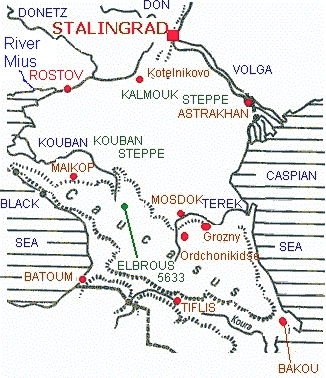|
Caucasia - Army
Group A
Hitler's
Directive #43
Army Group A was
composed of the 1st Panzer Army, von Kleist, ( 3 panzer, 2
motorised infantry, 7 German and 4 Roumanian infantry divisions
) and Group
Ruoff made up of 17th Army, under Ruoff ( 1 panzer, one
motorised infantry,
6 German and 4 Roumanian infantry divisions ) and 8th
Italian Army, under
Gariboldi ( 6 divisions).

The German plan
to launched another great summer offensive crystallized
in the early months of 1942. Hitler's decision was influenced by
his
economists, who mistakenly told him that Germany could not
continue
the war unless it obtained petroleum supplies from the Caucasus.
Hitler
was the more responsive to such arguments because they coincided
with
his belief that another German offensive would so drain the
Soviet
Union's manpower that the U.S.S.R. would be unable to continue
the
war. His thinking was shared by his generals, who had been awed
by the
prodigality with which the Soviets squandered their troops in
the fighting
of 1941 and the spring of 1942.
Part
of directive #45 :
"The task
of Army Group A is to encircle enemy forces which have escaped
across the Don in the area south and southeast of Rostov, and
to destroy them.
For this purpose strong fast-moving forces are to move from
the bridgeheads
which will be established in the
Konstantinovskaia-Tsymlyanskaya area, in a
general southwesterly direction towards Tikhoretsk. Infantry,
light infantry, and
mountain divisions, will cross the Don in the Rostov area.
In addition,
the task of cutting the Tikhoretsk-Stalingrad railway line
with
advanced spearheads remains unchanged.
Two armored
formations of Army Group A (including 24th Panzer Division) will
come under command of Army Group B for further
operations southeastwards.
Infantry division Grossdeutschland is not to advance beyond
the Manych sector.
Preparations will be made to move it to the west.
After the
destruction of enemy forces south of the Don, the most
important
task of Army Group A will be to occupy the ; entire eastern
coastline of the Black
Sea, thereby eliminating the Black Sea ports and the enemy
Black Sea fleet.
For this purpose the formations of 11th Army already
designated (Romanian
Mountain Corps) will be brought across the Kerch Straits as
soon as the advance
of the main body of Army Group A becomes effective, and will
then push
southeast along the Black Sea coastal road.
A further
force composed of all remaining mountain and light infantry
divisions will force a passage of the Kuban, and occupy the
high ground
around Maikop and Armavir.
In the further
advance of this force, reinforced at a suitable time by mountain
units, towards and across the western part of the Caucasus,
all practical passes
are to be used, so that the Black Sea coast may be occupied
in conjunction with
11th Army.
At the same
time a force composed chiefly of fast-moving formations
will give flank cover in the east and capture the Grozny
area. Detachments will
block the military road between Osetia and Grozny, if
possible at the top of the
passes.
Thereafter the
Bakou area will be occupied by a thrust along the Caspian coast.
The Army Group may expect the subsequent arrival of the
Italian Alpine Corps.
These
operations by Army Group A will be known by the cover name
"Edelweiss"."

Kurt Zeitzler |

Franz Halder |
Maikop (Maykup),
the great oil centre 200 miles south of Rostov, fell to
Kleist's right-hand column on August 9, and Pyatigorsk, 150
miles east
of Maikop, fell to his centre on the same day, while the
projected thrust
against Stalingrad, in the opposite direction from Rostov, was
being
developed. Shortage of fuel, however, slowed the pace of
Kleist's
subsequent southeastward progress through the Caucasian
mountains;
and, after forcing a passage over the Terek River near Mosdok
early in
September, he was halted definitively just south of that river.
From the
end of October 1942 the Caucasian front was stabilized; but the
titanic
struggle for Stalingrad, draining manpower that might have won
victory
for the Germans in Caucasia, was to rage on, fatefully, for
three more
months. Already, however, it was evident that Hitler's new
offensive
had fallen short of its objectives, and the scapegoat this time
was
Franz Halder, who was superseded by Kurt Zeitzler as chief of
the army
general staff.

|